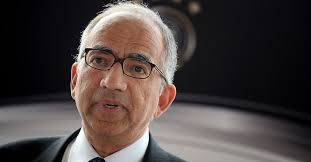September 3 – World governing body FIFA have appointed former US Soccer chief Carlos Cordeiro as a senior advisor for the organization’s global strategy and governance.
“Carlos is the right person to advise us as we modernise our regulatory framework and grow the sport in ways that advance football for men, women and youth across the globe,” said FIFA president Gianni Infantino in a statement.
The American, who built his personal wealth at US bank Goldman Sachs after earning an MBA from Harvard Business School, became the president of US Soccer in 2018 before resigning in March 2020.
The move by Infantino to bring Cordeiro into the FIFA fold of advisors is significant in that it brinks a skillset and expertise that has often been painfully missing under Infantino’s often mis-stepping regime in its drive for new money.
Cordeiro will not pretend to be an expert on the offside rule or the best concussion protocols – he expects experts in those areas to lead on them – but he is an expert on global finance, money raising and the crucial governance issues they entail.
He made his career in global finance and on major international company boards in environments that dwarfed the kinds of revenues FIFA aspires to. It is that understanding and respectability that will put FIFA and Infantino on a very different financial credibility level if they go to the capital markets to fund their expansion.
And if Cordeiro is true to his record, he is unlikely to be anyone’s stooge, and Infantino likes stooges. Cordeiro doesn’t need to be one – he is independently wealthy and is probably unlikely to take a salary from FIFA. His presidency of the USSF was as a volunteer, as was his lead on the World Cup winning 2026 bid.
At the USSF, Cordeiro was elected on a platform of transparency and increased governance. He separated the competition side of the organisation from its politics and put in place the eventual separation of exclusive marketing partner Soccer United Marketing – effectively a subsidiary of the MLS with all the attendant uncomfortable and highly criticised conflicts.
They were not universally popular initiatives, but they were undoubtedly needed from a governance perspective.
Cordeiro’s mistake came via an ill-thought out passage in the USSF’s legal filing in the case against its women’s national team that brought universal condemnation. “I did not have the opportunity to fully review the filing in its entirety before it was submitted, and I take responsibility for not doing so,” Cordeiro said in a letter at the time, explaining his decision to step down.
Other football executives would have ridden out the storm rather than owned the mistake. He will be working with a few of them.
What Cordeiro will also bring is the potential to build a significant bridge to FIFA from the US – the dominant host of the three-country 2026 World Cup. Internationally the USSF, since Cordeiro’s departure, has not engaged with the international governing bodies in the way it had previously, rather operating in its own inward-looking bubble. With a vacuum at the top of the USSF in terms of international interaction and contribution, Cordeiro offers the potential opportunity to re-engage.
Cordeiro had served as board member for over a decade at US Soccer.
“I’m eager to strengthen FIFA’s governance and build a game that offers more opportunities than ever for players, fans and partners at every level,” said Cordeiro.
How much of Cordeiro’s core skillsets FIFA will embrace will be interesting to observe.
Contact the writer of this story at paul.nicholson@insideworldfootball or moc.l1736513755labto1736513755ofdlr1736513755owedi1736513755sni@i1736513755tnuk.1736513755ardni1736513755mas1736513755

